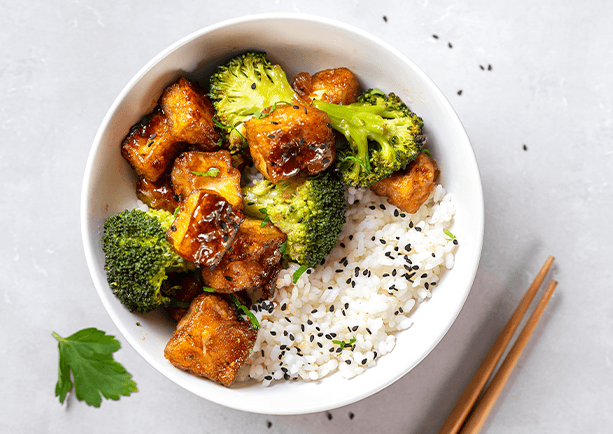15 Days of Nutritious Meals for Managing Psoriasis

Living with psoriasis is more than just dealing with the visible symptoms; it’s about managing a chronic condition that can significantly impact your overall well-being. Psoriasis, characterized by red, scaly patches on the skin, is an autoimmune disease that can lead to discomfort, pain, and even emotional distress.
When not properly managed, psoriasis can escalate, leading to more severe flare-ups, joint pain, and an increased risk of other health conditions like heart disease and diabetes. One of the most effective, yet often overlooked, ways to manage psoriasis is through diet. What you eat is crucial in controlling inflammation, which is at the heart of psoriasis.
This blog will explore a 15-day meal plan designed to help manage psoriasis symptoms. This plan provides nutritious and delicious meals that support your skin and overall health. Let’s dive into how these dietary changes can help you feel better from the inside out.
What is Psoriasis?
Psoriasis is a chronic autoimmune condition that primarily affects the skin, leading to the rapid buildup of skin cells. This excessive production of skin cells results in thick, red patches covered with silvery scales. These patches can appear anywhere on the body but are most commonly found on the elbows, knees, scalp, and lower back.
What are the Symptoms of Psoriasis?
Psoriasis manifests in several forms, but the most common symptoms include red patches of skin with thick, silvery scales, dry and cracked skin that may bleed, itching or burning sensations, and thickened, pitted nails. In some cases, psoriasis can also lead to joint pain and stiffness, a condition known as psoriatic arthritis.
What are the Types of Psoriasis?
There are several types of psoriasis, including plaque psoriasis (the most common type), guttate psoriasis (small, dot-like lesions), inverse psoriasis (red patches in body folds), pustular psoriasis (white pustules surrounded by red skin), and erythrodermic psoriasis (widespread redness and scaling).
What are the Causes and Triggers?
Psoriasis is caused by an immune system malfunction, where the body’s defense system mistakenly attacks healthy skin cells. This condition is believed to be hereditary, meaning it can run in families. Common triggers that can lead to or exacerbate psoriasis flare-ups include stress, infections, skin injuries, cold weather, smoking, and certain medications.
What is the Relationship Between Psoriasis and Your Diet?
Your diet is crucial in managing psoriasis, primarily by influencing inflammation. While diet alone may not cure psoriasis, making specific dietary changes can help manage symptoms and reduce the frequency and severity of flare-ups. Here are key points to understand the relationship between psoriasis and your diet:
- Inflammation Control: Psoriasis is driven by chronic inflammation. Certain foods can either contribute to or help reduce this inflammation. Anti-inflammatory foods like fatty fish, leafy greens, and fruits rich in antioxidants can help manage the inflammatory response associated with psoriasis.
- Impact of Processed Foods: Highly processed foods, such as refined sugars, white flour, and fried items, can increase inflammation, potentially worsening psoriasis symptoms. Reducing or eliminating these foods from your diet can significantly improve skin health.
- Omega-3 Fatty Acids: Foods rich in omega-3 fatty acids, such as salmon, flaxseeds, and walnuts, have anti-inflammatory properties that can help alleviate psoriasis symptoms. Incorporating these into your diet can support skin health and reduce the severity of flare-ups.
- Gut Health Connection: A healthy gut microbiome is crucial for immune function. Probiotic-rich foods like yogurt, kefir, and fermented vegetables can promote gut health, which may help modulate the immune response and reduce psoriasis symptoms.
- Identifying Trigger Foods: Certain foods may trigger or worsen psoriasis symptoms in some individuals. Common culprits include nightshade vegetables (like tomatoes and peppers), gluten, and dairy. Identifying and avoiding these triggers can help keep your skin clear.
- Balanced Nutrition: Ensuring a diet rich in essential nutrients, vitamins, and minerals supports overall health and immune function. A well-balanced diet can enhance the body’s ability to repair and maintain healthy skin, which is crucial for those managing psoriasis.
What are the Foods to Avoid if You Have Psoriasis?
When managing psoriasis, it's important to be mindful of certain foods that can exacerbate symptoms. Here’s a list of foods to consider avoiding:
- Processed and Refined Sugars: Foods high in refined sugars, such as candies, pastries, and sugary drinks, can trigger inflammation and worsen psoriasis symptoms.
- Saturated and Trans Fats: Foods like red meat, fried foods, and processed snacks contain unhealthy fats that can increase inflammation and contribute to flare-ups.
- Nightshade Vegetables: Some people with psoriasis may be sensitive to nightshade vegetables like tomatoes, peppers, and eggplants, potentially triggering inflammation.
- Gluten: Gluten-containing grains such as wheat, barley, and rye may aggravate symptoms in individuals with gluten sensitivity or celiac disease.
- Dairy Products: Full-fat dairy products like milk, cheese, and butter can promote inflammation in some individuals and may worsen psoriasis.
- Alcohol: Alcohol consumption can trigger flare-ups and reduce the effectiveness of psoriasis treatments, making it advisable to limit or avoid it.
15-Day Meal Plan for Managing Psoriasis
|
Day |
Breakfast |
Lunch |
Dinner |
Snacks |
|
1 |
Oatmeal with blueberries, chia seeds, and almond milk |
Grilled salmon salad with mixed greens and avocado |
Quinoa with roasted vegetables and grilled chicken |
Almonds and an apple |
|
2 |
Smoothie with spinach, banana, flaxseeds, and coconut milk |
Lentil soup with a side of whole-grain bread |
Baked cod with steamed broccoli and sweet potato |
Carrot sticks with hummus |
|
3 |
Scrambled eggs with spinach and whole-grain toast |
Chickpea salad with cucumber, tomatoes, and feta |
Stir-fried tofu with brown rice and mixed vegetables |
A handful of walnuts and a pear |
|
4 |
Greek yogurt with walnuts, honey, and berries |
Turkey and avocado wrap with whole-grain tortilla |
Baked chicken with quinoa and roasted asparagus |
Sliced bell peppers with guacamole |
|
5 |
Whole-grain toast with avocado and poached eggs |
Tuna salad with mixed greens and olive oil dressing |
Grilled shrimp with wild rice and sautéed spinach |
A handful of mixed nuts and a small orange |
|
6 |
Smoothie with kale, mango, chia seeds, and almond milk |
Lentil and vegetable stew with a side of brown rice |
Baked salmon with a side of quinoa and roasted veggies |
Sliced cucumber with hummus |
|
7 |
Oatmeal with flaxseeds, berries, and almond milk |
Quinoa salad with roasted vegetables and chickpeas |
Grilled chicken breast with sweet potato and green beans |
A handful of almonds and an apple |
|
8 |
Scrambled eggs with tomatoes and avocado |
Spinach and kale salad with grilled chicken and balsamic dressing |
Baked cod with quinoa and steamed broccoli |
Carrot sticks with almond butter |
|
9 |
Smoothie with spinach, banana, chia seeds, and almond milk |
Chickpea and avocado wrap with whole-grain tortilla |
Grilled tofu with brown rice and stir-fried veggies |
A handful of mixed nuts and a pear |
|
10 |
Greek yogurt with mixed berries and flaxseeds |
Quinoa salad with black beans, corn, and avocado |
Baked chicken with a side of wild rice and sautéed spinach |
Sliced bell peppers with hummus |
|
11 |
Oatmeal with banana, walnuts, and almond milk |
Lentil and vegetable soup with whole-grain bread |
Grilled shrimp with quinoa and roasted vegetables |
A handful of almonds and a small orange |
|
12 |
Whole-grain toast with avocado and a poached egg |
Spinach and avocado salad with grilled chicken |
Baked salmon with brown rice and steamed green beans |
Sliced cucumber with guacamole |
|
13 |
Smoothie with kale, mango, chia seeds, and coconut water |
Turkey and avocado wrap with whole-grain tortilla |
Stir-fried tofu with brown rice and mixed vegetables |
A handful of walnuts and a pear |
|
14 |
Scrambled eggs with spinach and whole-grain toast |
Quinoa salad with roasted veggies and chickpeas |
Baked cod with sweet potato and sautéed spinach |
Carrot sticks with almond butter |
|
15 |
Greek yogurt with honey, walnuts, and berries |
Lentil and kale soup with a side of whole-grain bread |
Grilled chicken with quinoa and roasted asparagus |
Sliced bell peppers with hummus |
How to Get Started with a Psoriasis Diet?
Embarking on a psoriasis-friendly diet can initially feel overwhelming. Still, with a few simple steps, you can make a smooth transition that supports your health and helps manage your symptoms effectively. Here’s how to get started:
Consult with a Healthcare Professional: Before making any significant changes to your diet, it’s important to consult with a healthcare provider or a registered dietitian. They can help you tailor your diet to meet your needs, identify potential food sensitivities, and ensure you get all the necessary nutrients.
Identify and Eliminate Trigger Foods: Identify foods that may trigger or worsen your psoriasis symptoms. Common triggers include processed foods, dairy, gluten, and nightshade vegetables. Try eliminating these foods for a few weeks and observe how your body responds.
Focus on Anti-Inflammatory Foods: Incorporate more anti-inflammatory foods into your daily meals. Foods rich in omega-3 fatty acids (like salmon and flaxseeds), leafy greens, berries, and nuts are excellent choices. These foods help reduce inflammation, a key factor in managing psoriasis.
Plan Your Meals: Meal planning is essential when starting a psoriasis diet. Create a weekly menu that includes a variety of nutrient-dense foods and snacks. Preparing meals in advance ensures you have healthy options, reducing the temptation to reach for less healthy choices.
Stay Hydrated: Drink plenty of water throughout the day to keep your skin hydrated and support overall health. Staying hydrated can help improve skin elasticity and reduce the severity of psoriasis flare-ups.
Conclusion
Managing psoriasis through diet is a powerful tool that can help reduce flare-ups and improve overall well-being. By focusing on anti-inflammatory foods, avoiding known triggers, and staying consistent with a psoriasis-friendly meal plan, you can take control of your symptoms and enhance your quality of life. Remember, small dietary changes can make a big difference, and with patience and mindful eating, you’ll be on your way to healthier skin and a healthier you.
FAQs
1. How can a nutritious diet help manage psoriasis symptoms?
A nutritious diet helps manage psoriasis by reducing inflammation, boosting the immune system, and supporting overall skin health. Anti-inflammatory foods like leafy greens, fatty fish, and berries can help alleviate symptoms and prevent flare-ups.
2. What are the key nutrients for psoriasis management to include in a diet?
Omega-3 fatty acids, antioxidants, vitamin D, and fiber are key nutrients for managing psoriasis. These nutrients help reduce inflammation, support immune function, and promote healthy skin.
3. Which foods should be avoided or minimized to help manage psoriasis?
To manage psoriasis, avoid or minimize processed foods, refined sugars, saturated fats, and potential allergens like gluten and dairy. These foods can trigger inflammation and exacerbate symptoms.
4. Are any specific vitamins or minerals particularly important for individuals with psoriasis?
Vitamin D, omega-3 fatty acids, zinc, and selenium are particularly important for individuals with psoriasis. These nutrients support immune health, reduce inflammation, and promote skin repair.
5. How can I plan balanced meals to ensure I get all the necessary nutrients while managing psoriasis?
Plan balanced meals by incorporating a variety of colorful vegetables, lean proteins, whole grains, and healthy fats. Focus on anti-inflammatory foods and ensure each meal includes a mix of essential nutrients to support skin health and overall well-being.
6. What are some healthy snack options that can support psoriasis management?
Healthy snacks for psoriasis management include nuts, seeds, fresh fruits, yogurt with berries, and sliced vegetables with hummus. These snacks are rich in anti-inflammatory nutrients and help maintain steady blood sugar levels.
Trending Searches:
Weight Loss Meal Plans Dubai | Affordable Meal Plans Abu Dhabi | Meal Plan Ajman | Meal Plan Al In | Meal Plan Sharjah | Meal Plan Subscription
Related Blogs
The Burnout Diet
Jan 30, 2026 | 8The mental load of “What should I eat today?"
Jan 22, 2026 | 8The real glow-up starts with your gut health
Jan 14, 2026 | 8Healthy food that doesn’t taste like “Diet Food”
Jan 17, 2026 | 8Why do most people in the UAE get their calories wrong
Dec 8, 2025 | 6DASH Diet Meal Plan
Nov 11, 2025 | 8Fatty Liver Meal Plan
Oct 31, 2025 | 8Pregnancy Diet Meal Plan
Oct 27, 2025 | 82000 Calorie Meal Plan
Oct 1, 2025 | 8Intermittent Fasting Diet Plan
Sep 5, 2025 | 8






